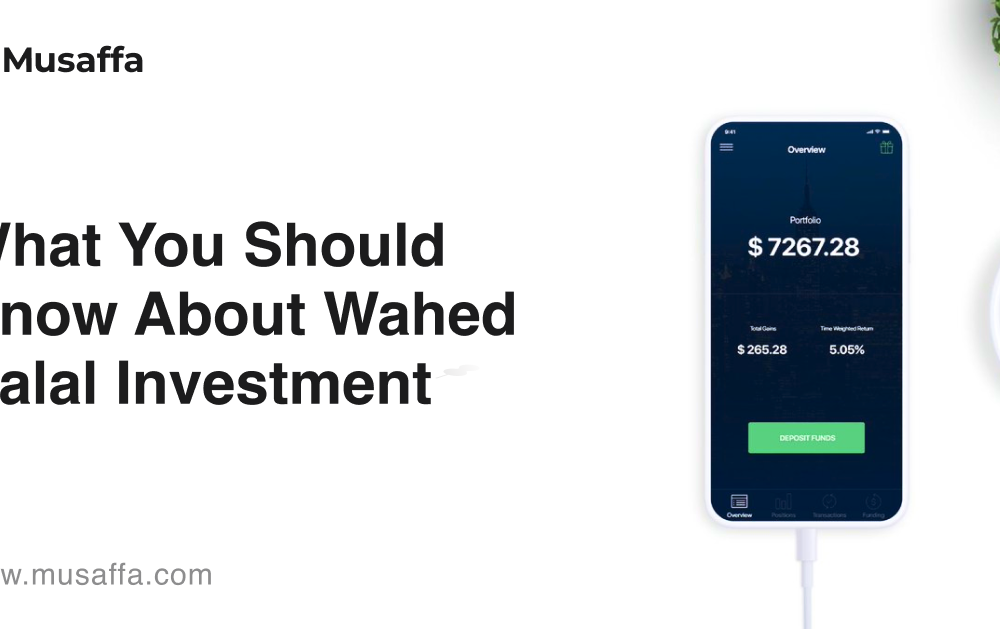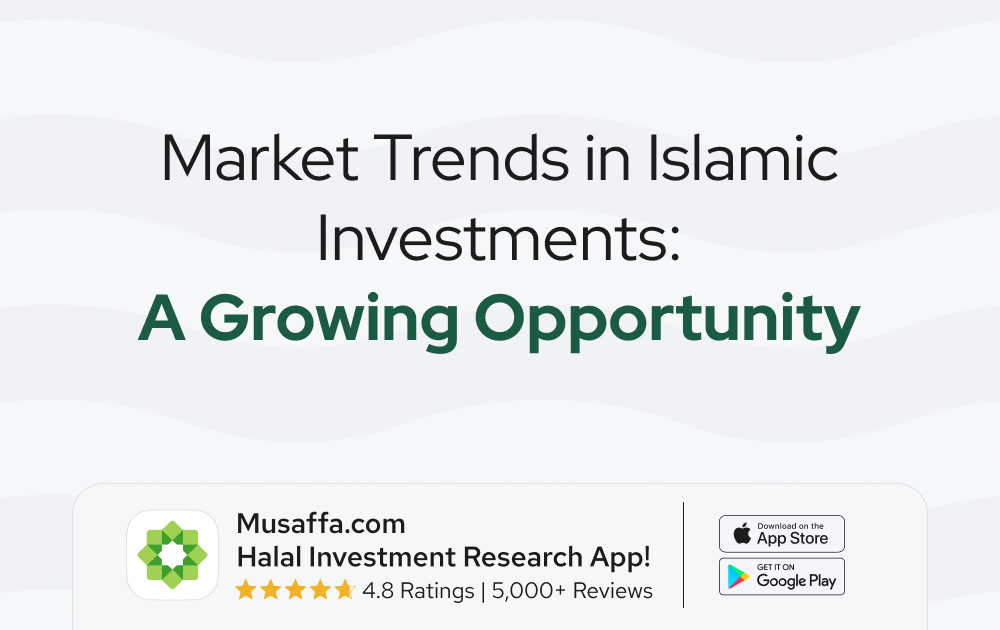As a Muslim investor, you can be curious if the stock you are interested in is ethical in nature or not. Indeed, you can utilize the following 4 halal stock screener apps to check it. According to the Accounting and Auditing Organization for Islamic Financial Institutions (AAOIFI), the Halal Stock Screener app assists in filtering and finding Sharia-compliant stock options globally.
Key Features of Top Halal Trading Apps
1. Shariah Compliance Screening
One of the primary features of halal trading apps is the ability to screen investments for Shariah compliance. These apps use various criteria to ensure that the stocks, ETFs, and other financial instruments available on their platforms do not involve prohibited activities such as interest (riba), gambling (maysir), or investment in haram industries like alcohol, tobacco, and pork products.
2. Diverse Investment Options
Halal trading apps offer a range of investment options, including:
- Halal Stocks: Companies that are compliant with Islamic principles.
- Shariah-compliant ETFs: These funds invest in a basket of halal stocks and other assets, providing diversification.
- Sukuk (Islamic Bonds): Fixed-income securities that comply with Islamic finance principles by avoiding interest.
- Real Estate Investments: Platforms like Fundrise allow users to invest in Shariah-compliant real estate projects.
3. User-Friendly Interfaces
Most halal trading apps are designed to be user-friendly, catering to both beginners and experienced investors. Features like customizable dashboards, one-click trading, and detailed reporting tools make it easy to manage investments and track performance. Apps like Zoya and Wahed Invest also offer educational resources to help users understand the principles of halal investing.
4. Automated Portfolio Management
Some halal trading apps, such as Sarwa and Wahed Invest, offer Robo-advisory services. These platforms automatically manage your portfolio based on your risk tolerance, investment goals, and adherence to Shariah principles. This feature is particularly beneficial for those who prefer a hands-off approach to investing
Let’s look through 4 halal stock screener apps:
FINISPIA
Finispia is a stock screening tool designed for clients who want to trade with halal shares and stocks globally. You can search by company name or ticker. Of course, with the help of Finispia, you can check if the stock you want to purchase is halal or not. Usually, the result is represented based on 5 mainstream Islamic investment methodologies. Besides, in Finispia, you can use third-party brokers to trade considering your country, and you can start trading easily.
ISLAMICLY
Islamicly is an advanced, halal stock screening tool. This Platform has access to 30,000+ international Shariah-compliant stocks. Certainly, you can find all information about stock from the stocks’ details page. Furthermore, in islamicly, you can create a portfolio where you can see information about stock changes, value changes, and compliance levels of stocks.
ZOYA
Zoya is another reliable, easy-to-use, and user-friendly stock screener. At Zoya, you can go through shariah compliance reports for about 12,000 US, UK, and Canadian stocks and groups separate stocks. Moreover, if the compliance status of your stock changes, you can receive an email update. Also, Zoya offers alternative halal stocks to your non-compliant stocks.
Musaffa
Musaffa is Islamic trading, investment, and financial education platform. The platform aims to attract investors seeking to align their money with their values and faith. Not only does our platform let investors trade Shariah-compliant securities, but it also serves as an Islamic Finance education platform where investors can learn more about investment fundamentals and how to invest in Shariah-compliant assets, including stocks and ETFs.
Additionally, we conduct intense financial and operational screening of all securities under coverage to filter out non-Shariah compliant securities. You get results based on AAOIFI's Screening methodology.
Currently, our platform hosts over 9,000 stocks and ETFs for the U.S, Malaysian, and Indonesian markets. Surely, we will cover more stocks from different countries.
Understanding the Islamic Principles Behind Halal Trading
1. The Prohibition of Riba (Interest)
Riba, or interest, is strictly prohibited in Islam. Halal trading apps ensure that all investments are free from interest-based transactions. This is particularly important in Forex trading, where swap fees (interest on overnight positions) are common. Halal trading accounts eliminate these fees, replacing them with alternative structures that comply with Shariah law.
2. Avoiding Maysir (Gambling)
Islamic finance prohibits gambling or excessive speculation. This means that halal trading apps avoid highly speculative investments, such as derivatives and certain forms of margin trading, that could be considered akin to gambling.
3. Ethical Investment Choices
Halal trading is not just about avoiding haram activities; it’s also about promoting ethical and socially responsible investments. Many halal trading apps focus on Environmental, Social, and Governance (ESG) criteria, ensuring that your investments support positive social and environmental outcomes.
Also Read: Is Online Gold Trading Halal In Islam?
Frequently Asked Questions (FAQs)
1. What is a halal trading app?
A halal trading app is a digital platform that allows users to invest in financial instruments while ensuring that all transactions and assets comply with Islamic law. These apps screen investments for prohibited activities and provide Shariah-compliant alternatives.
2. How do halal trading apps ensure compliance with Shariah law?
Halal trading apps use rigorous screening processes, often guided by Islamic scholars or advisory boards, to ensure that investments do not involve interest, gambling, or unethical business practices. They regularly update their databases to reflect any changes in a company’s compliance status.
3. Can non-Muslims use halal trading apps?
Yes, non-Muslims can use halal trading apps. These platforms are open to anyone interested in ethical investing, and their principles may appeal to a wide audience, including those who prioritize socially responsible investing.
4. What are the costs associated with using halal trading apps?
The costs vary depending on the app. Some platforms charge management fees for automated portfolios, while others may have transaction fees for trades. It's essential to review the fee structure of each app before investing.
5. Are halal trading apps regulated?
Yes, most halal trading apps are regulated by financial authorities in their respective regions. For example, Sarwa is regulated by the Financial Services Regulatory Authority (FSRA) in the UAE, and Wahed Invest is regulated by the SEC in the United States.
6. Can I trade cryptocurrencies on halal trading apps?
Some halal trading apps offer cryptocurrencies, but it’s important to note that the permissibility of cryptocurrencies in Islam is debated among scholars. If available, these apps typically offer only those cryptocurrencies that meet specific criteria for Shariah compliance.
7. What is the minimum investment required for halal trading apps?
The minimum investment varies by platform. For example, Wahed Invest requires a minimum of $100, while Sarwa’s halal portfolios require at least $500 to start. Some apps, like Zoya, do not have a minimum investment but charge fees based on transaction volume.
8. How can I verify if a stock is halal?
Halal trading apps like Zoya and Islamicly offer stock screening tools that allow you to verify the Shariah compliance of any stock. These tools provide detailed reports on why a stock is considered halal or haram based on its business activities and financial practices.
9. Are there any risks involved in using halal trading apps?
As with any investment, there are risks involved in using halal trading apps. These include market risks, the potential for lower diversification, and the possibility that a previously compliant stock may become non-compliant. However, these apps often provide tools to help manage these risks effectively.
10. How do halal trading apps handle dividends?
Dividends from halal investments are permissible as long as they come from compliant business activities. Some apps automatically purify dividends by donating a portion to charity if they are derived from mixed sources (both halal and haram activities).








